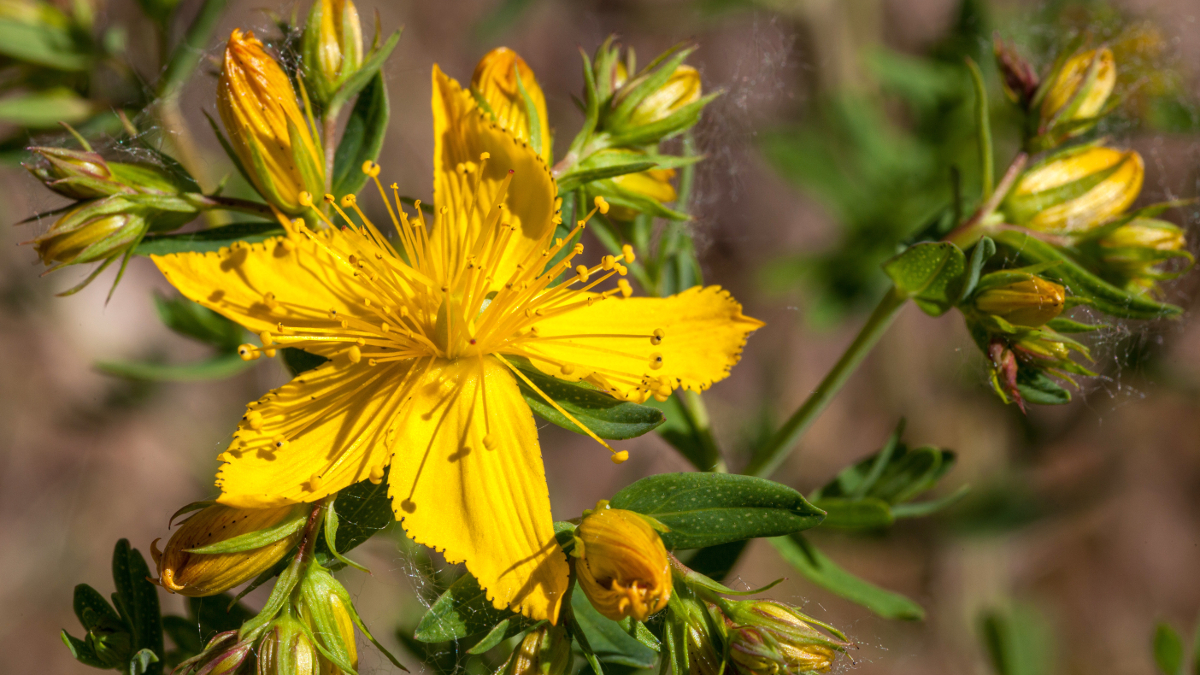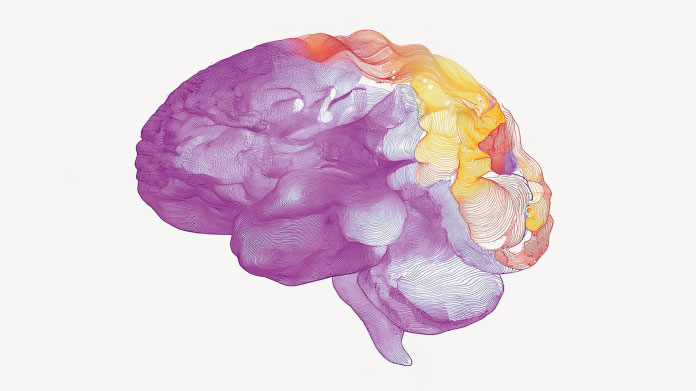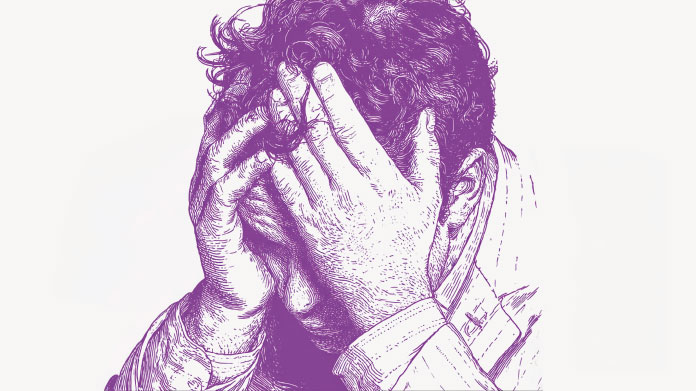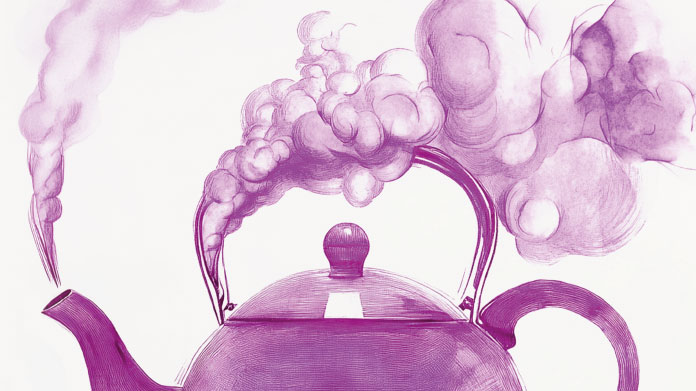St. John’s Wort: how this plant could promote mental well-being
Used for millennia, St. John’s Wort has enjoyed renewed popularity in recent years, primarily for its potential effects on emotional balance and mood. Discover everything you’ve ever wanted to know about St. John’s Wort.

The potential benefits of St. John’s Wort for mental health
St. John’s Wort (Hypericum Perforatum) is a herbaceous perennial, from the Clusiaceae family. It was used in traditional pharmacopoeia to treat insomnia and reduce anxiety. It is considered by some to be the ‘best natural anti-depressant‘ there is.
St. John’s Wort is said to support:
- good emotional balance
- mental and physical well-being ;
- positive mood
- good balance of the nervous system during the menstrual cycle;
- optimal relaxation;
- good quality sleep;
- stimulation of mental capacities;
- strengthening of the body’s defences...
These health claims, allowed by the EFSA (European Food Safety Authority), are currently being examined by this same organisation.
How St. John’s Wort is thought to act on the ‘happy hormones’
St. John’s Wort is known to contain high levels of hypericin, a natural pigment from the naphtodianthrone family.
For a better understanding of how the plant works, we need to focus on our synapses. A synapsis forms a sort of information channel between two neurons in the brain: one which sends the message and the other which receives it.
The neurotransmitters responsible for transferring this information via synapses include serotonin, dopamine and noradrenalin (the famous ‘happy hormones’ associated with feelings of pleasure, well-being and other positive emotions).
The problem is that a significant proportion of these neurotransmitters can be instantly recaptured by the ‘sender’ neurons. The more this happens, the less the brain receives the happiness and pleasure information … and the greater the effect on the individual’s mood.
A number of in vivo tests have shown that the hypericin in St. John’s Wort appears to inhibit the recapture of serotonin, dopamine and noradrenalin (1). The synthetic compounds used in treatments for depression exploit precisely this kind of mechanism.
Choose a St. John’s Wort extract with the right dose of hypericin
According to researchers at the CNRS (Centre National de la Recherche Scientifique) and University Hospital of Montpellier, “only a St. John’s Wort extract with a guaranteed content of active principles has demonstrated therapeutic efficacy”(2).
Indeed the concentration of active ingredients in individual plants can vary considerably depending on the soil, growing conditions, etc. It’s therefore important to check the hypericin content of your supplement, which should ideally be in the region of 0.3% (try, for example, the excellent product St John's Wort Extract). (4)
St. John’s Wort: a few contraindications
As with many plants used in phytotherapy, St. John’s Wort can sometimes interact with other medications and is thus contraindicated in certain cases. Always check with your doctor before taking St. John’s Wort.
St. John’s Wort may affect the efficacy of drug treatments in the following cases:
- transplant patients;
- oral contraception;
- anticoagulant treatment;
- AIDs patients;
- Hepatitis C patients on peginterferon;
- epilepsy;
- hypertension;
- heart failure;
- and asthma (5).
References
- Müldner H, Zöller M. [Antidepressive effect of a Hypericum extract standardized to an active hypericine complex. Biochemical and clinical studies] Arzneimittel-forschung. 1984 ;34(8):918-920.
- https://www.researchgate.net/profile/Sylvie_Rapior/publication/259474999_Le_Millepertuis_ou_St_John's_Wort_Une_indication_therapeutique_en_France_-_De_nombreux_risques_d'interactions_avec_les_medicaments/links/00b7d52c0593c9f0e6000000/Le-Millepertuis-ou-St-Johns-Wort-Une-indication-therapeutique-en-France-De-nombreux-risques-dinteractions-avec-les-medicaments.pdf
- Linde K, Berner MM, Kriston L. St John’s wort for major depression. Cochrane Database of Systematic Reviews 2008, Issue 4. Art. No., https://serval.unil.ch/resource/serval:BIB_97D9CEAA4408.P001/REF.pdf
- KECK, Martin E, et al. Le traitement des troubles anxieux : 1ère partie : Trouble panique, agoraphobie, anxiété généralisée, phobie sociale, phobies spécifiques. Swiss Medical Forum, 2011, vol. 11, no. 34, p. 558-566, http://archive-ouverte.unige.ch/unige:32699
- Revue Prescrire, 2004, 24 (250) : 362-369.
Keywords
1 Days
very good expereince
very good expereince
Jelena Đaković
1 Days
Very good products.
Very good products.
Agnes BENDSAK
3 Days
Just OK
Just OK, ordering from company for many years and being safisfied
Lynn Mae
4 Days
Recomendo
Produtos encomendados são recebidos atempadamente e de acordo com o anunciado! Muito satisfeita!
Carla Sofia
4 Days
Everything is great!
Everything is great!
Jonas
9 Days
The delivery was fast and the product…
The delivery was fast and the product is great
SOMMARIVA Gianni
10 Days
Great service and lots of information
Great service and lots of information
Gabi
13 Days
Service Satisfaction
I’m satisfied with the service; it fulfilled what it set out to do.
Anfhony Abreu
16 Days
Original product and fast delivery
Original product and fast delivery. I haven't started it yet, but will do soon.
Vincenza Catania
19 Days
Good quality
Good quality. Good service.
Leonel Guzman
21 Days
Top!!!!!!!!
Top!!!!!!!!
Michael
23 Days
Excellent!
Products are great and delivered fast!
PARDINI Debora
24 Days
From order to receive the product
From order to receive the product, the process is smooth & fast. It’s good to customers.
WONG Mei Ling
25 Days
Fast delivery
very quick delivery to italy. product is good.
Customer
26 Days
Prompt delivry !!👍
Prompt delivry !!👍
SWEET Christine
of experience
your money back
##montant## purchase




